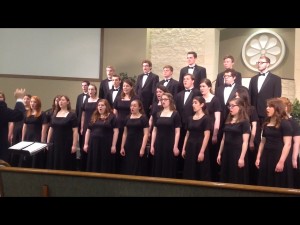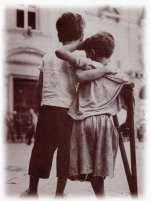A Song Leaders Guide…Pt. 2
As we continue to look at The Song Leader’s Guide, you’ll remember previously we talked about “Being Prepared.” Though we can never underestimate the importance of working with the preacher and coordinating the song service, the second point is of equal value. In today’s  article we’ll look at the next recommendation for song leaders. We must know and practice humility. Without a humble spirit, our song leading becomes nothing more than a stage for your assumed presentation. Not a good thing!
article we’ll look at the next recommendation for song leaders. We must know and practice humility. Without a humble spirit, our song leading becomes nothing more than a stage for your assumed presentation. Not a good thing!
Not only should we be prepared…a good song leader will demonstrate humility before, during and after the worship services. Before worship services begin, walk down the aisle of the auditorium and visit with the members. Knowing them by name is an important connection you can make before you step up to lead. If you are too busy picking songs, or if you aren’t willing to visit with the members, you’ll never be able to properly lead them. A humble heart will see others as valuable, and be willing to invest time in them.
During the song service, demonstrate humility. Have a countenance of joy when the song calls for it, but avoid excessive facial expressions that draw undue attention to you. A smile will tell the congregation you believe in the message of the song. At all times, avoid a look of distress or frustration. If you mess up on a series of notes, or if you sing the wrong words, don’t let the congregation know it has ‘rattled you.’ Your brothers and sisters may not even know you made a mistake, but either way it won’t shake you because, “this is not about you.” When you lead a melancholy song, strive to focus the congregation on the seriousness of the song’s message. Remember, you can communicate the meaning of a song simply by the expression you have on your face.
And, humility must also be exhibited after the worship services. At times you may receive accolades regarding your ‘work’ following the worship. A common response by many song leaders is a simple ‘thank you.’ And  though there is nothing wrong with this reply, perhaps a better response would be ‘to God be the glory.’ However, if someone acknowledges my song leading, I prefer the phrase, ‘the congregation was in good voice.’ It is always best to turn the focus away from yourself, and towards our God and His church. Just remember that a humble heart cannot be seen in words, but in actions. Give praise to God and uplift His church or you run the risk of leaving the congregation feeling like spectators rather than participants.
though there is nothing wrong with this reply, perhaps a better response would be ‘to God be the glory.’ However, if someone acknowledges my song leading, I prefer the phrase, ‘the congregation was in good voice.’ It is always best to turn the focus away from yourself, and towards our God and His church. Just remember that a humble heart cannot be seen in words, but in actions. Give praise to God and uplift His church or you run the risk of leaving the congregation feeling like spectators rather than participants.
Next month (April) we’ll conclude this three part series of a Song Leader’s Guide to Worship.
The Prayer of the Children
 In January, the Freed-Hardeman Chorale toured North Texas during their Winter Tour. I was blessed to hear them sing most every night of the 12 day tour, and one of my favorite songs they sang was written by Kurt Bestor. In 2005, he shared the background for the song and how it was born from his frustration over the horrendous civil war and ethnic cleansing that was taking place in the former country of Yugoslavia. Having lived in this war-torn country during the 70’s, he grew up loving the people with whom he lived and served. The following is a portion of his explanation behind “Prayer of the Children…”
In January, the Freed-Hardeman Chorale toured North Texas during their Winter Tour. I was blessed to hear them sing most every night of the 12 day tour, and one of my favorite songs they sang was written by Kurt Bestor. In 2005, he shared the background for the song and how it was born from his frustration over the horrendous civil war and ethnic cleansing that was taking place in the former country of Yugoslavia. Having lived in this war-torn country during the 70’s, he grew up loving the people with whom he lived and served. The following is a portion of his explanation behind “Prayer of the Children…”
“When Yugoslavian President Josip Broz Tito died, different political factions jockeyed for position and the inevitable happened – civil war. Suddenly my friends were pitted against each other. Serbian brother wouldn’t talk to Croatian sister-in-law. Bosnian mother disowned Serbian son-in-law and so it went. Meanwhile, all I could do was stay glued to the TV back in the US and sink deeper in a sense of hopelessness.
Finally, one night I began channeling these deep feelings into a wordless melody. Then little by little I added words….Can you hear….? Can you feel……? I started  with these feelings – sensations that the children struggling to live in this difficult time might be feeling. Serbian, Croatian, and Bosnian children all felt the same feelings of confusion and sadness and it was for them that I was writing this song.
with these feelings – sensations that the children struggling to live in this difficult time might be feeling. Serbian, Croatian, and Bosnian children all felt the same feelings of confusion and sadness and it was for them that I was writing this song.
I took a long night to finish the song and I sang it for my wife and family, but that was about it. I put it away for awhile never thinking to sing it publicly. Then one night, as I struggled to fill a 2-hour concert, I decided to sing “Prayer of the Children.” I’m not sure, but I think it was 1994. The song had an immediate reaction on those in attendance and I was surprised at the almost hushed sound as I sang.”
The interpretation (signing) is being done by my daughter, Emili Bruce. She is a junior, Arts & Humanities Major at Freed-Hardeman University.
Can you hear the prayer of the children?
On bended knee, in the shadow of an unknown room
Empty eyes with no more tears to cry
Turning heavenward toward the light
Crying Jesus*, help me
To see the morning light-of one more day
But if I should die before I wake,
I pray my soul to take
Can you feel the hearts of the children?
Aching for home, for something of their very own
Reaching hands, with nothing to hold on to,
But hope for a better day a better day
Crying Jesus*, help me
To feel the love again in my own land
But if unknown roads lead away from home,
Give me loving arms, away from harm
Can you hear the voice of the children?
Softly pleading for silence in a shattered world?
Angry guns preach a gospel full of hate,
Blood of the innocent on their hands
Crying Jesus*, help me
To feel the sun again upon my face,
For when darkness clears I know you’re near,
Bringing peace again
Dali cujete sve djecje molitive?
(Croatian translation: ‘Can you hear all the children’s prayers?’)
Can you hear the prayer of the children?


 you do? If we are true to ourselves, each of us has had times when our ‘love for Christ’ has grown cold or weak. Is there something we can do, some where we could turn? Scripture should always be our first approach, followed by (and accompanied with) prayer. But personally, when Satan poisons my heart with lies and interferes with my walk, I tend to turn to the psalms, hymns and spiritual songs. “In Christ Alone” (Keith Getty, 2007), “Turn Your Eyes Upon Jesus” (Helen Lemmel, 1922), “Day by Day” (Caroline Berg, 1865) and “I Need Thee Every Hour” (Annie Hawks, 1872) are just a few of my ‘go to psalms’ in times of distress. But today let me encourage you to follow the thought of a song written in 1837 by John R. Wreford…
you do? If we are true to ourselves, each of us has had times when our ‘love for Christ’ has grown cold or weak. Is there something we can do, some where we could turn? Scripture should always be our first approach, followed by (and accompanied with) prayer. But personally, when Satan poisons my heart with lies and interferes with my walk, I tend to turn to the psalms, hymns and spiritual songs. “In Christ Alone” (Keith Getty, 2007), “Turn Your Eyes Upon Jesus” (Helen Lemmel, 1922), “Day by Day” (Caroline Berg, 1865) and “I Need Thee Every Hour” (Annie Hawks, 1872) are just a few of my ‘go to psalms’ in times of distress. But today let me encourage you to follow the thought of a song written in 1837 by John R. Wreford…